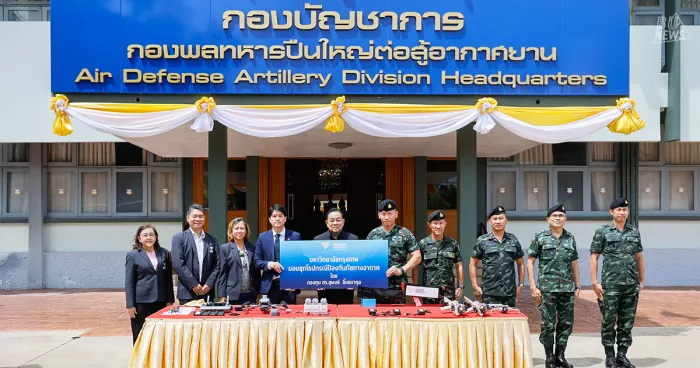Featured Stories
Featured Stories — BU Delivers Anti-Drone Guns from Extended Research to Military for Operational Use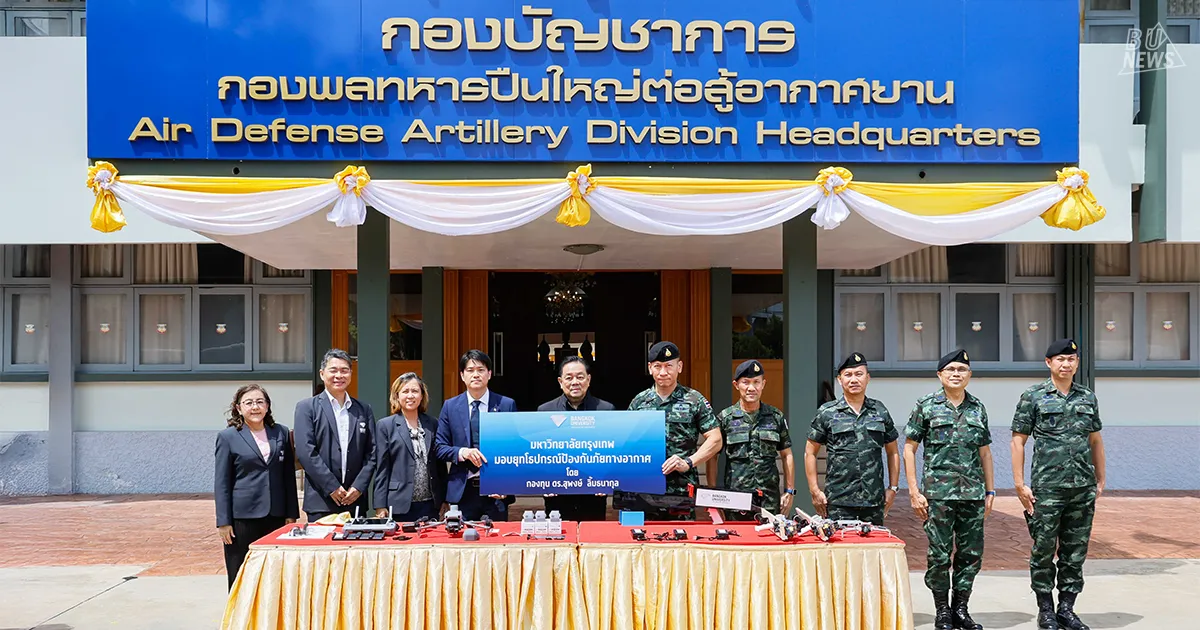
BU Delivers Anti-Drone Guns from Extended Research to Military for Operational Use
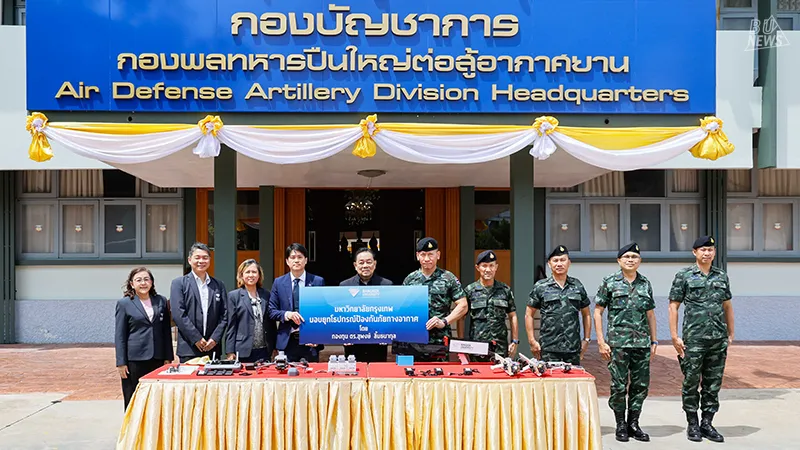
Bangkok University has successfully developed and invented an Anti-Drone Gun, an innovative defense technology that addresses urgent needs in countering aerial threats. This achievement results from the dedication of researchers and experts from Bangkok University's Center of Specialty Innovation (CoSI), who have successfully developed anti-drone gun technology with international-level effectiveness.
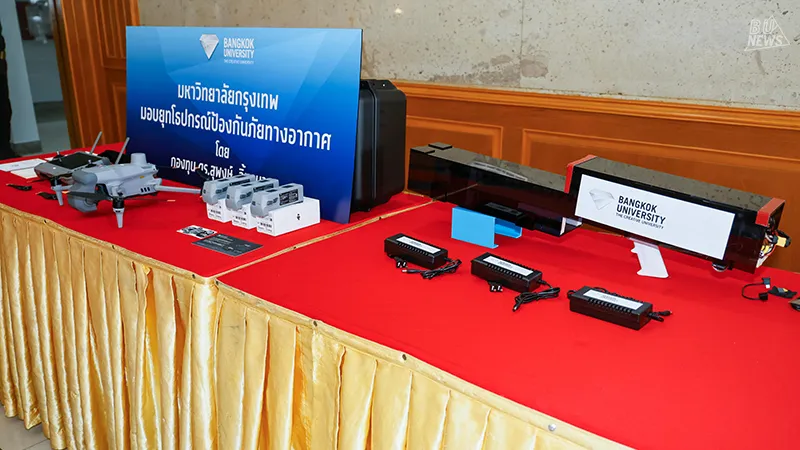
The technology behind this anti-drone gun is advanced and highly effective, using signal jamming principles frequency ranges, which are the main frequency bands used by typical drones for communication with remote control systems. When the anti-drone gun releases signals toward the target drone, it creates jamming signals that sever the connection between the target drone and the operator controlling it via remote control. This causes the drone to immediately lose control and execute its programmed protocols, whether landing at its current location or automatically returning to the control point.
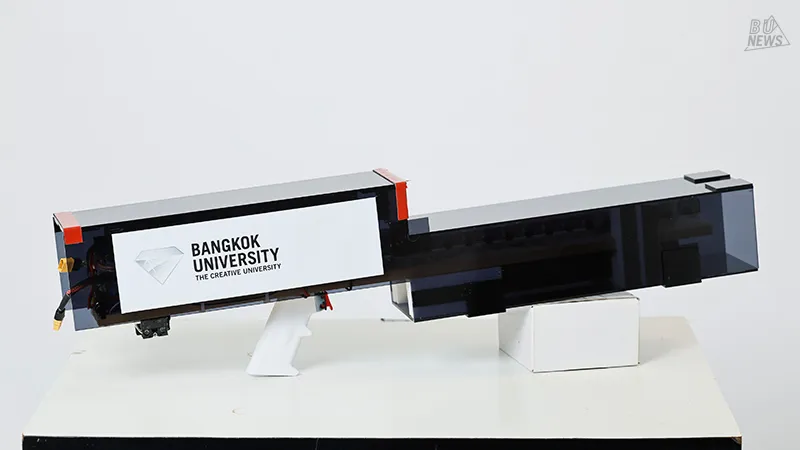
The distinctive features of this developed anti-drone gun include an operating range of up to 1 kilometer. More importantly, this anti-drone gun has successfully undergone real-world operational testing in Surin Province. The anti-drone gun developed by the research team from the Center of Specialty Innovation offers excellent value in terms of production costs, as currently available anti-drone guns in the market are expensive and large, making them inconvenient for use. However, this gun can be produced at economical costs with international-standard quality, while being convenient for use and transportation in actual operational areas.
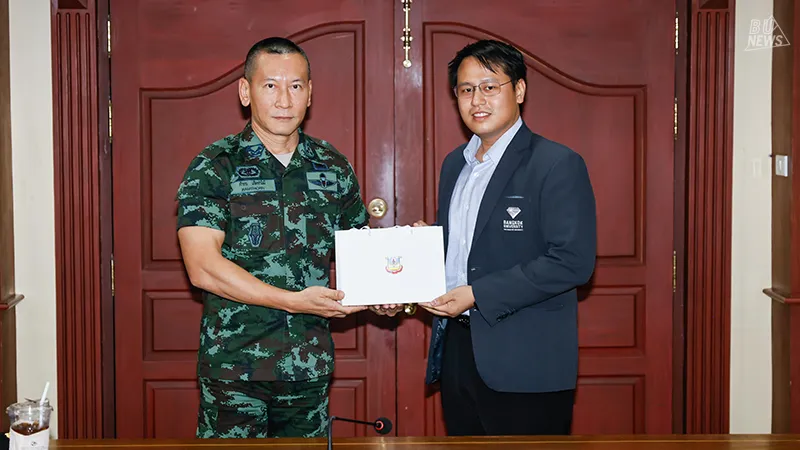
Dr.Panapong Songsukthawan, a faculty member in the Research and Educational Innovation Development Division, stated: "The anti-drone gun developed through collaboration between Bangkok University and military units has been designed to be portable, lightweight, and suitable for border area operations. The distinctive feature of this device is its ability to jam signals on 2 main frequencies, equipped with long-lasting battery systems that can connect to solar charging stations installed along borders. For safety, the device has a usage lock system to prevent unauthorized use. Future plans include modifications to allow integration with border soldiers' standard weapons, with easy disassembly and assembly capabilities.
As a researcher, I feel honored to collaborate with the military. The combined expertise of both sides has resulted in innovation that helps strengthen national security. Additionally, students participating in this project feel proud to have created work that can be practically applied and contribute to protecting national security."

After completing testing and operational use, Bangkok University delivered 3 anti-drone guns along with 1 target drone to the Army Air Defense Command (AADC). Dr. Supong Limtanakool, Executive Vice President for External Affairs at Bangkok University, represented the university in delivering the equipment to Colonel Kamthorn Guedtamai, Deputy Commander of the Anti-Aircraft Artillery Division, for immediate use in air defense operations.
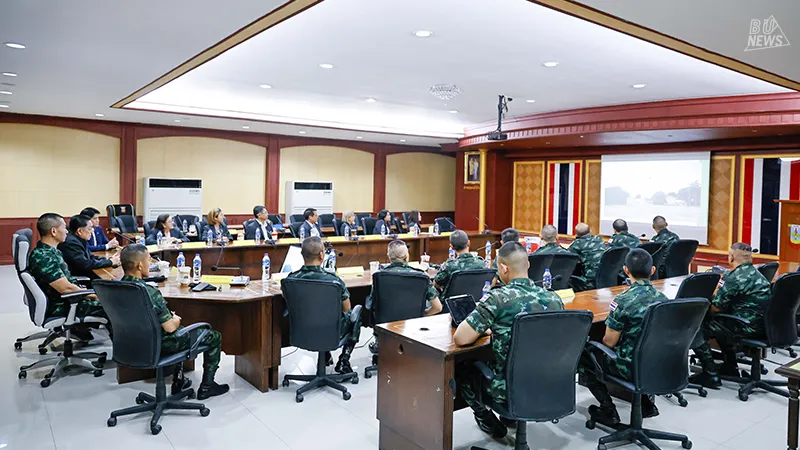

Colonel Kamthorn Guedtamai, Deputy Commander of the Anti-Aircraft Artillery Division, expressed satisfaction with the collaboration between the Anti-Aircraft Artillery Division and Bangkok University in the anti-drone gun development project: "The collaboration between the Anti-Aircraft Artillery Division and Bangkok University focuses on anti-drone guns and drone technology, which are extremely important military equipment for addressing current security threats. We must thank the faculty and research team from Bangkok University who have applied their knowledge and capabilities to create innovations beneficial to society, and we sincerely hope to extend this collaboration for sustainable development and maximum benefits for future national defense."

The success of this project stems from research collaboration between Bangkok University's Center of Specialty Innovation (CoSI) and the Army Air Defense Command (AADC), which have been working together continuously since 2019. The anti-drone guns delivered this time represent the first generation of development, and both organizations plan to seek additional research funding to upgrade and develop more advanced and modern technology.
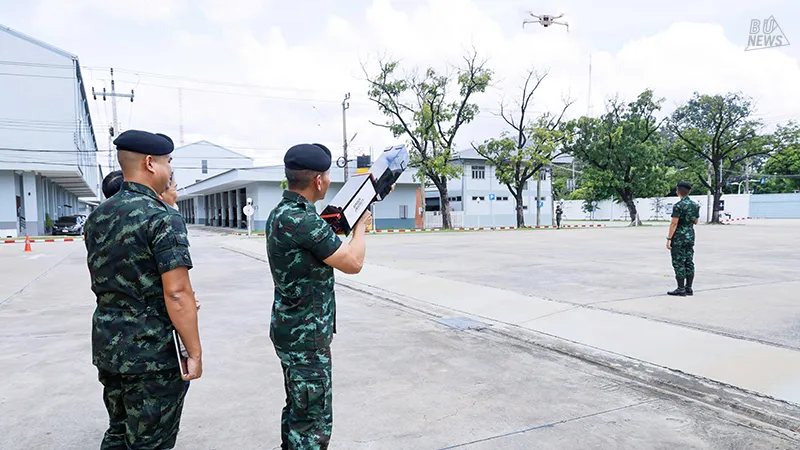
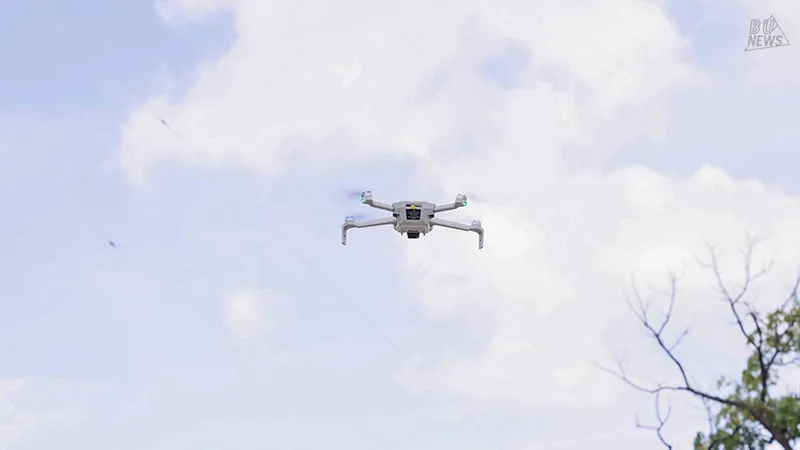

This innovation not only demonstrates the outstanding potential and capabilities of researchers at Bangkok University's Center of Specialty Innovation but also helps strengthen and enhance national defense capabilities, reducing dependence on and importation of foreign technology. Furthermore, it serves as a clear example of applying academic knowledge and research to solve concrete problems for societal benefit and national progress.

Information
Register Info
Contact Us




